Character Assassination: The Asphalt Jungle
The Asphalt Jungle is one of noir’s classic caper films. It focuses on a brilliant jewel heist, planned by an aging crook and orchestrated by a motley crew of small-time hoods. Although the burglary goes off according to plan (for the most part), fate steps in – as it so often does in the world of noir – and the scheme unravels with all the force of a Greek tragedy. Featuring a riveting plot, beautiful photography, and memorable dialogue, one of the most stellar features of The Asphalt Jungle is the spate of fascinating characters. Here’s a look at some of the film’s standout personas:
Gus Minissi (James Whitmore)
We first meet Gus, a hunchbacked diner owner, when a customer comes in his café and hands him a gun. Gus wordlessly puts the gun in his cash register and seconds later, when two cops come in and ask how long the customer has been there, Gus calmly responds, “Don’t ask me. I don’t watch the clock. I own the joint.” The cops plan to conduct a search but Gus tells them to get a warrant first. It turns out that the customer, Dix Handley (Sterling Hayden) is friends with Gus, and this brief scene is a key to Gus’s personality – cool under pressure, defiant in the face of authority, loyal to his pals. His loyalty is further demonstrated later on, when Dix reveals his plan for a stick-up in order to get $2,300 he owes to his bookie. Knowing that the cops are after Dix, Gus refuses to return his gun to him and offers instead to loan him the money – even though he has to borrow it from someone else to get it. And after the heist is committed and the police are hot on Dix’s trail, Gus phones him to warn of their impending approach and arranges for him to hide out at a grocery store near the river, even as the cops are furiously banging on the phone booth door.
Under Gus’s gruff, streetwise exterior is a tenderness that is exhibited in another scene, when he is seen feeding a cat on the counter of his diner. “Smart cat,” he remarks with admiration. “Never does a lick of work, stays out all night, sleeps all day.” When a customer comments that he runs over cats every chance he gets, Gus promptly tosses him out, warning him, “If I ever see you running over a cat, I’ll kick your teeth out.”
Dix Handley (Sterling Hayden)
Described numerous times as a “hooligan,” Dix is a small-time crook from Kentucky who is driven by his love for horses – which seems to be manifested by his predilection for betting on them. His plan is to win enough money to return to the South and buy back his beloved childhood farm: “First thing I do when I get there I take a bath in the crick and get this city dirt off me,” he says. Dix is a no-nonsense, soft-spoken man of few words, but in an early scene, when he appears in a police line-up, he shows that he’s certainly no pushover. During the line-up, Dix fixes the witness with a look of resolve – it’s not quite menacing, not truly threatening, but it’s full of promise. A small flicker of satisfaction crosses his lips when the witness refuses to name him as the perpetrator.
Dix is handy with a gun and wouldn’t hesitate to use it, but he also operates under a particular code of honor. In sharing his plans to get the money he owes his bookie, he tells Gus, “I just can’t be in [his] debt and keep my self-respect.” Like Gus, he also has a layer of kindness underneath his criminal exterior. Although he doesn’t return the feelings of his would-be girlfriend, Doll (Jean Hagen), he allows her to stay with him after she is kicked out of her apartment. He even offers her money (that he can ill-afford) when she leaves.
Doc (Sam Jaffe)
Doc is the very definition of the dapper gentleman – his soft voice and gentle accent serve to underscore his aura of refinement. When he first goes to see a local bookie, Cobby (Marc Lawrence), after spending seven years in prison, he doesn’t bat an eye when Cobby fails to recognize him. “Maybe you didn’t get who I was,” he wryly observes. Later, when Doc enters Cobby’s “betting parlor,” Doc is instantly drawn to a calendar on the wall. Flipping through it, he declines Cobby’s offer of a drink, telling him, “That’s all it is – a habit.” (We assume, at the time, that he is referring to liquor, but his words will take on a different significance later on.) When Cobby leaves the room, Doc immediately puts on his spectacles and returns to the calendar – it is then that we see that it features a series of young bathing beauties. He only stops his perusal, with a rather guilty start, when someone enters the room. Doc’s penchant for young girls is demonstrated again when he lays out his well-planned scheme for the jewel heist. After the caper is over, he intends to retire to Mexico: “I’ll live like a king. Mexican girls are very pretty. I’ll have nothing to do all day long but chase them in the sunshine.”
Doc also possesses wisdom, intelligence, a keen insight and excellent character judgment. Early on, when Cobby remarks on his close relationship with a cop he has on his payroll, Doc replies, “Experience has taught me never to trust a policeman. Just when you think one’s all right, he turns legit.” Also, Doc harbors suspicions of attorney Alonzo Emmerich (Louis Calhern), but he trusts Dix from the start (“He impressed me as a very determined man – and far from stupid.”). Both impressions turn out to be accurate.
But for a chance accident, not to mention a double-cross by a crooked attorney, Doc’s well-thought-out plot for the heist would have been a complete success. In fact, even with the monkey wrenches that were thrown into the mix, Doc might well have gotten away with the satchel full off diamonds if he hadn’t been tripped up by his obsession with young girls. In the midst of his getaway, he lingers at a roadside café to watch a young girl dance – as he leaves the café, he is nabbed by police.
Cobby (Marc Lawrence)
Cobby is a smarmy, small-time bookie who is full of self-importance. More so than any other character in the film, he is fascinating to watch: jittery, nervous and highly expressive, he’s constantly in motion – sharply exhaling his breath, whirling around, hitting his chest, tugging on his pants. Although he brags about being “in the chips,” he works out of a dingy, dimly lit, sparsely decorated room in a run-down building. When Doc first shares his idea for the diamond heist, Cappy’s face clearly shows that he’s not ready for the big time: “Money makes me sweat,” he confesses later. “That’s the way I am.” He’s also a cowardly suck-up – in an early scene, when Dix is offended after Cobby tells him he’s giving him a $2,500 betting limit, Cobby literally runs after him, pleading with him to stay, offering him a conciliatory drink. But when Dix is safely out of earshot, Cobby calls him a “small-time hooligan,” grousing, “Where does he come off – blowing a fuse!” And later, after Dix pays him the money he owes, Cobby practically falls on the floor apologizing for insulting him and insisting that he have a drink of whiskey “made in your home state.” But the second Dix is out of the door, Cobby labels him a “big hick.”
Unlike Doc, Cobby is decidedly not known for his shrewdness and insight. It is Cobby’s idea to secure Emmerich to finance the heist, and when Doc tells him he has heard that Emmerich is broke, Cobby is incredulous. “Are you crazy?” he explodes in disbelief. “I’ve seen Mr. Emmerich operate for 20 years – he handles all your biggest cases. He’s got two houses, four cars, a half a dozen servants – it he’s broke, I wanna be broke the same way.”
Alonzo Emmerich (Louis Calhern)
Intelligent, devious, and smooth as silk, Emmerich is a married man who has a weakness for his young, beautiful mistress (Marilyn Monroe), whom he has instructed to call him “Uncle Lon.” When Doc approaches him with the plan for the diamond heist, Emmerich agrees to provide the $50,000 in upfront costs, in return for a third of the take, and proposes that he handle the fencing of the jewels. Doc reluctantly agrees, not knowing that Emmerich is actually broke and doesn’t have the money for the backing. In an effort to raise the funds, Emmerich calls on a private dick, Bob Brannom (Brad Dexter) to collect the money from his debtors, telling him to “use the method called for in each particular case and don’t tell me anything about it. All I want is results.” But when Brannom fails to come up with a single dime of cash, Emmerich’s true character starts to break through his crafty carapace, and he confesses that he is broke: “I gotta get out from under. And the irony of it is that I’ve got an opportunity – and I can’t take it.” Brannom offers a solution – get the upfront money from Cobby, convince the thieves to turn over the jewels to him for fencing, and then split the proceeds with him fifty-fifty.
When Doc and Dix show up with the jewels, Emmerich’s smooth façade is firmly intact – he glibly tells them that he doesn’t yet have the money: “Gentlemen, I must admit at this moment, I’m embarassed . . . I haven’t got the currency right here in my hands. But it’s promised by an unimpeachable source.” But the more he talks, the less confidence he displays – his words begin to falter and his eyes flicker with fear and desperation as he offers up a veiled threat: “It wouldn’t be safe for you to carry that stuff around,” he tells Doc. “You said so yourself. When the police start looking for that stuff tomorrow morning, they’re not likely to call me up. They’re not likely to send detectives to search my house, you know? You, on the other hand, Doc – you’re just out of prison. They’re certainly going to be looking for the big-timers, like yourself.” When Doc doesn’t agree to the plan, Brannom pulls a gun; although he manages to wound Dix in the side, Dix delivers a fatal shot to his heart. In response, Emmerich’s true colors show up in full force – he covers his face with his hands and cries.
Later, tracked down by police to the cottage where he has stashed his mistress, Emmerich once again appears to be in control. When the police commissioner tells him he is being arrested for complicity in robbery and murder, Emmerich barely bats an eye: “If I were you, Hardy, I’d think up a few more charges. You might be able to make one of them stand up if you get an imbecile jury. And the right judge.” But when the commissioner shows him a lengthy confession signed by Cobby, Emmerich knows the jig is up. Still, he is cool and collected when he requests permission to go to the next room to phone his wife (“It’s getting late – she might be worried”), then promptly shoots himself.
Doll Conovan (Jean Hagen)
Slightly ditzy, definitely clingy, but the soul of devotion, Doll is clearly in love with Dix – to a fault. We first meet her when she shows up at Dix’s apartment asking for a place to stay. She laughs with gratitude when he consents, despite the fact that he warns her “not to get any ideas.” No matter how rudely or gruffly he speaks to her, she’s always smiling, always happy just to be in his presence. The only time Doll stands up to Dix is near the end of the film, when she arranges to purchase a car for his getaway. She begs him to let her go with him, but he refuses, telling her that he is wanted for murder. But Doll insists – she would risk anything to be with the man she loves. “I don’t care – I just want to be with you,” she says. “You can’t go without me. I won’t let you. I won’t tell you where the car is.” And when Dix reluctantly agrees, her serious and stern demeanor turns immediately to smiles again. Unfortunately for Doll – and, ultimately, all of the characters in The Asphalt Jungle, she wouldn’t be smiling for long.






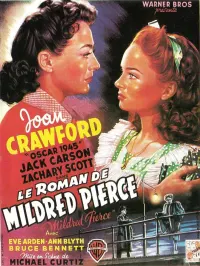




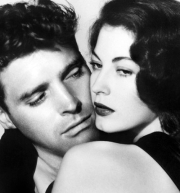
















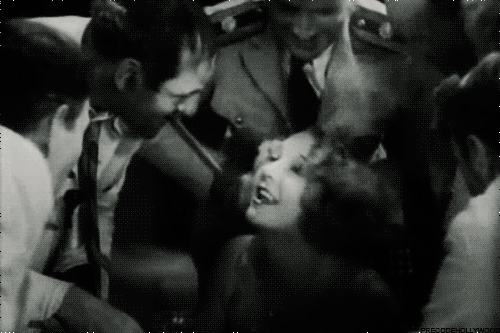


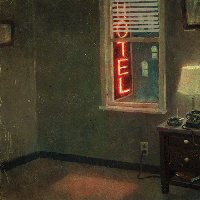
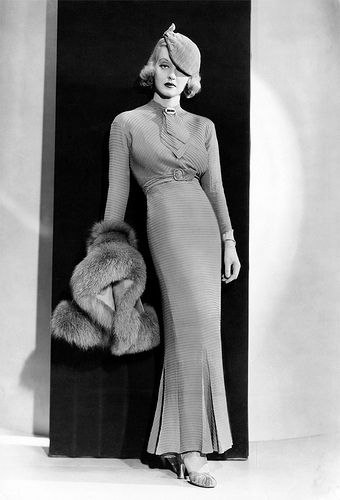



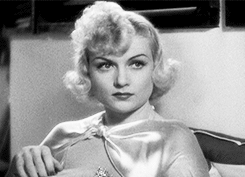
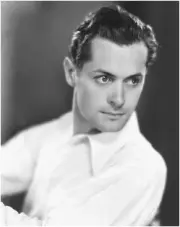
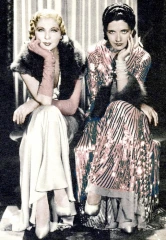





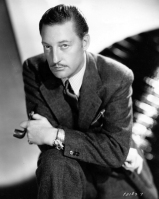




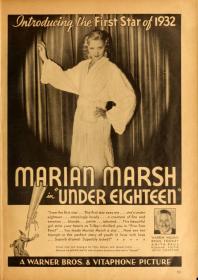
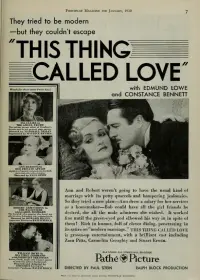

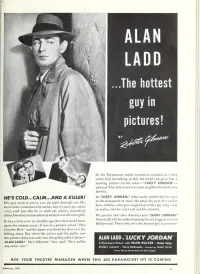


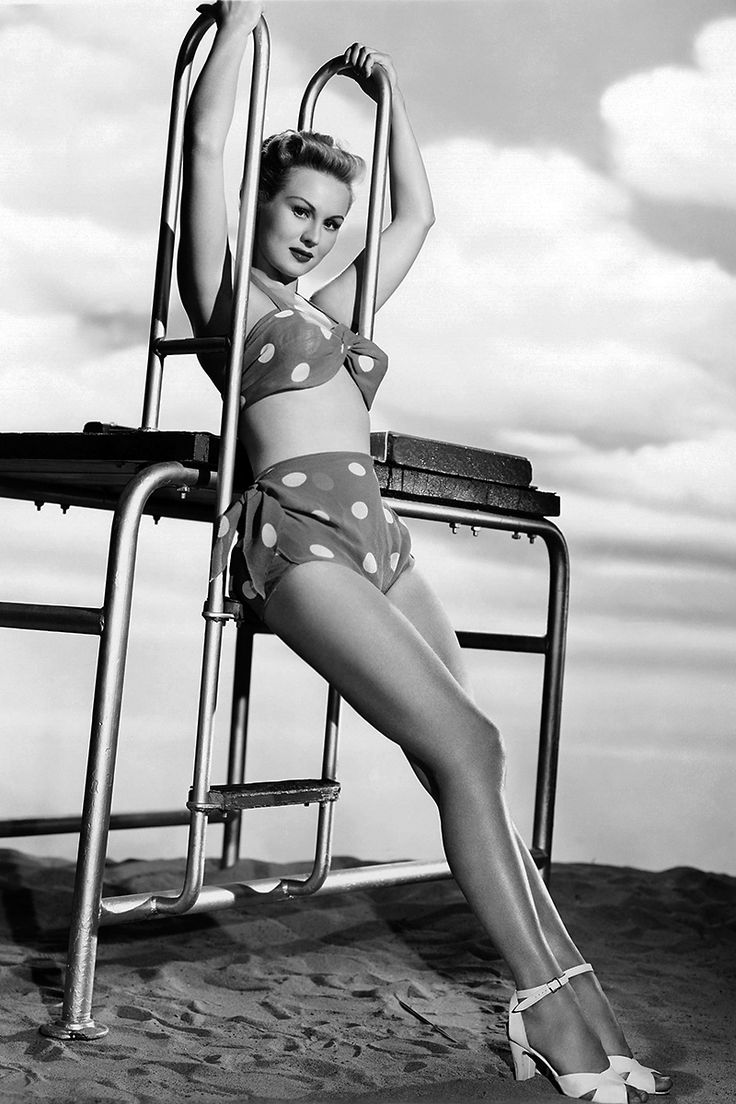



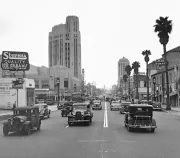



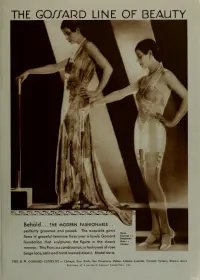

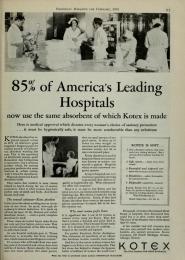

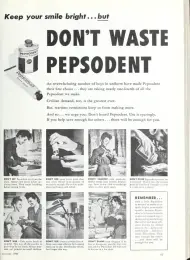


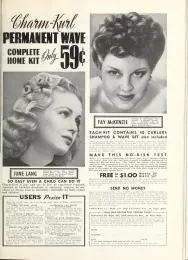





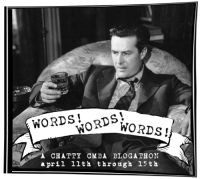

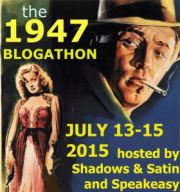
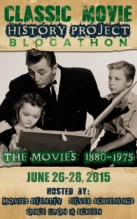
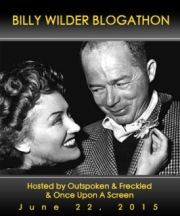


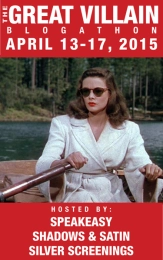


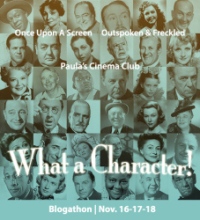



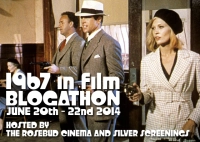


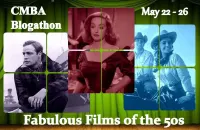
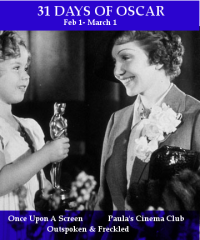
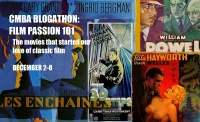







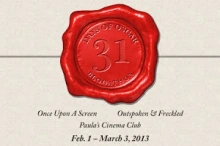

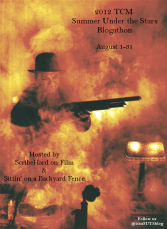


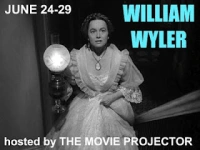





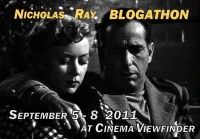

[…] Face and Employees’ Entrance) and films noirs (including Out of the Past, Born to Kill, and The Asphalt Jungle). And, of course, it also gave us one of my absolute favorite noirs: Mildred […]
[…] Character Assassination, my look at the main characters in The Asphalt Jungle. It’s received the fewest views of all my posts, but I enjoyed looking at the fascinating cast of characters offered in this great film. […]
I saw you mentioned this as your under rated entry. Glad you mentioned it, because Asphalt Jungle is one of my favorite movies. The ending with the horses is heartbreaking. I tried to describe the noir genre to a friend who had no clue what it was – he tends toward James Bond . So I recorded this film as an introduction to noir…. Can’t say he’s hooked, but his horizon is definitely broader.
I share your fondness for Asphalt Jungle, Muriel — it’s got so much going for it. And it’s a great pick for sharing noir with the novice. Years ago, when I introduced a friend to noir, Asphalt Jungle was one of the first ones I showed him!
[…] and High Sierra. (For the review of this feature, pop over to Andrew’s site, and also click here to check out one of my first posts at Shadows and Satin, which takes a look at the […]
A good analysis. The characterization is first rate throughout but Hayden, Calhern and Jaffe all stand out for me.
Thanks so much, Colin. I totally agree about Hayden, Calhern and Jaffe. And Marc Lawrence, I think, gives his best performance.
Indeed. Lawrence was always good. I recently watched him in Johnny Apollo, where he has a much smaller role, and thought he was very enjoyable.
[…] in a big way. The film offers a mélange of great characters – which I discuss in more detail here – including Dix Handley (Sterling Hayden), described by a reviewer as a “brazen hoodlum” who […]
[…] that would have otherwise been in heavy contention, like Gun Crazy (1950), Sunset Boulevard (1950), The Asphalt Jungle (1950), The Big Heat (1953), The Big Combo (1955), and The Sweet Smell of Success […]
[…] full of first-rate noirs, including Out of the Past (1947), Pitfall (1948), Gun Crazy (1950), and The Asphalt Jungle (1950). But my shadowy recommendation for the month is Kansas City Confidential (1952), a […]
[…] The Asphalt Jungle (1950) and Clash By Night (1952): Marilyn Monroe Day – August 27 […]